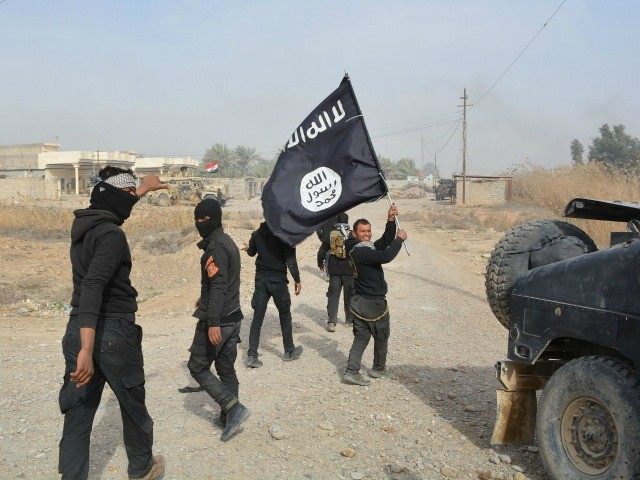WASHINGTON D.C. – A U.S. defense official said Wednesday there are about 15,000 Islamic State (ISIS) fighters remaining in Iraq and Syria.
About 2,500 jihadists remain in its former stronghold in Mosul, Iraq, and 3,000 or 4,000 are left in its de facto capital in Raqqa, Syria, said the official who spoke on background.
“Daesh is on the run,” said the official, using a derogatory Arabic name for ISIS. The group is “being degraded by every measure.”
The CIA estimated in early 2016 that ISIS’s numbers were between 20,000 to 25,000 in Iraq and Syria, down from 20,000 to 31,000 in 2014.
The official estimated that ISIS has lost approximately 65 percent of terrain it controlled at the peak of its expansion into Iraq and Syria in 2014. The number of foreign fighters coming to Iraq or Syria has dropped from roughly 2,000 a month, to fewer than a hundred, the official said.
Observers expect the fight to liberate Raqqa to begin in the coming weeks, and it could involve more U.S. troops getting closer to the fight.
The Pentagon’s “favored option” among several options forwarded to the White House last week, includes increasing the use of Special Operations forces, attack helicopters and artillery, arming Syrian Kurdish and Arab forces on the ground and easing restrictions on U.S. troops, according to the Washington Post.
U.S. military officials involved in the planning have proposed lifting a cap of 503 U.S. troops officially authorized to deploy to Syria. Under the Pentagon’s plan, U.S. troops would not be directly involved in ground combat but would work closer to the front lines to assist the Syrian Democratic Forces in retaking Raqqa.
While American troops would not participate in ground combat, the proposal would grant them more freedom to navigate the front line and delegate more decision-making authority down the military line from Washington, according to the Post.
U.S. troops could also provide attack helicopters and artillery support, arming Syrian Kurdish and Arab partners, and easing restrictions on U.S. forces.
“Raqqa will probably be a long, hard, deliberate battle,” said the official.
“There’s a lot of trenches; there are a lot of tunnels, IED belts, minefields, booby traps, house-borne [improvised explosive devices]. There’s no shortage of explosive materials and vehicles to put it in. So we expect that to be very tough,” the official said. “They continue to enhance their defenses there in the city.”

COMMENTS
Please let us know if you're having issues with commenting.